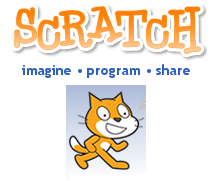Attributed to Mark Twain in 1907. The spirit of which was created by Grant Allen in 1894. The essence has evolved over time. To me, the quote resonates with my firmly held conviction that one should not let an ideal, institution, or building prevent one from achieving an education. This is the Information Age. If you can read this, you have the basic tools to help you learn anything within reason.
There was a recent conversation on Twitter about how popular media, especially television shows, give the impression that the only desired university options are Harvard, Yale, or Brown and how these narratives can lead to feelings of inadequacy for those who didn’t attend an Ivy League institution.
In the same media, the representation (if one exists at all) of an informal education, one outside the walls of academia (brick or virtual), is painted with all shades of contempt.
To the crowds of the college educated (symbolic and in real life):
Without a Bachelors: Ha! Really? You’re joking? You’re not? (whispers) What a loser. They must be, like, stupid or something.
Lacking a Masters: You couldn’t hack it, could you?
Gave up on the dissertation: Perfectly normal.1
Only have an Associates: Well, you shouldn’t have given up on the Bachelors or stopped while you were ahead on your debt after graduating High School.
Went to Ivy Tech Community College: Did you even graduate?
Only have a High School Diploma (like myself): Well, you…you…should consider going back to school. But start easy and attend Ivy Tech first so you don’t waste big dollars at Purdue.
I attended Purdue University for one year. The institution, in a formal capacity, wasn’t for me. I finished strong after a year. No regrets. The waves of nostalgia subsided after a couple years.
Since dropping out, I have taken on a more aggressive role of educating myself by utilizing the resources around me. Never shy to engage with local academics, the intelligentsia or community experts, I am afforded a multitude of opportunities to sharpen myself on a vast array of topics and skills. Outside of a school, you have the fluidity to move at any speed you desire.
As Ray Bradbarry is fond of saying, “I graduated from the public library.” Basic literacy skills required. Local taxes have already paid your tuition in full.
Adding the other educational assets in your community such as museums, art galleries, parks, coffee shops, pubs, co-ops, community centers, public meetings, streets, and the Internet, you quickly learn the freedom you possess to engage in informal education.
1Unless you are around other PhDs, and then you are not even considered. Except when you have a good lead on some Federal grant money that is in their field of study. “That’s a big grant. What are you doing this weekend? Let’s grab some coffee at MatchBOX and talk about a business plan.“


